Una polveriera chiamata Turchia
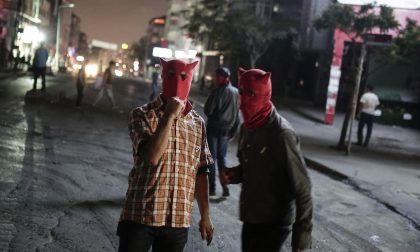
Istanbul, gli spari che sono stati uditi ieri vicino all'ingresso del palazzo Dolmabahce, nel quartiere Besiktas,sono arrivati dopo una notte turbolenta. In un altro quartiere della città, Esenler, sulla sponda europea della capitale, nella serata del 18 agosto ha preso il via una manifestazione non autorizzata, che ha lanciato molotov contro la polizia. Negli scontri, tra polizia e sospetti militanti del Ydg-h, il gruppo armato giovanile del Pkk curdo, è morto un 17enne. Solo “leggermente ferito” invece il poliziotto turco vittima dell’attacco armato compiuto a pochi passi dalla residenza del premier a Istanbul, meta turistica di primo piano della città. Secondo le prime ricostruzioni, l'attacco ha preso di mira gli agenti di guardia sul posto. Pare che gli assalitori abbiano fatto esplodere delle cariche prima di usare le pistole semiautomatiche e sparare. Due sospetti sono stati fermati nelle vicinanze poco dopo l'assalto, mentre stavano fuggendo verso il consolato tedesco. Il Governatorato cittadino ha annunciato che gli assalitori erano membri della stessa organizzazione terroristica che ha attaccato la sede del partito Akp lo scorso 8 agosto. Sempre ieri un altro attentato ha scosso la Turchia. Nel sud est del Paese otto soldati sono rimasti uccisi dallo scoppio di una bomba, hanno riferito le fonti della sicurezza, che hanno attribuito la paternità dell’attentato al Pkk.
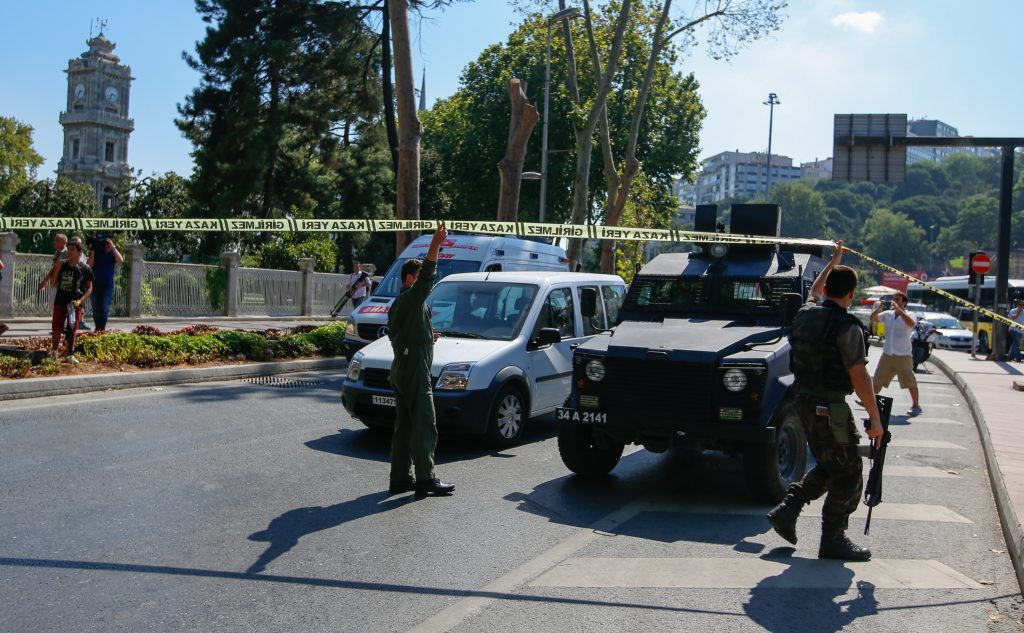
Police officer secure the road that leads to Istanbul's Dolmabache Palace, Wednesday, Aug 19, 2015 following an armed attack. Turkish police arrested two people after shots were fired at officers guarding the Ottoman-era palace that is a major tourist attraction, Turkey's state-run news agency said. (AP Photo/Emrah Gurel)
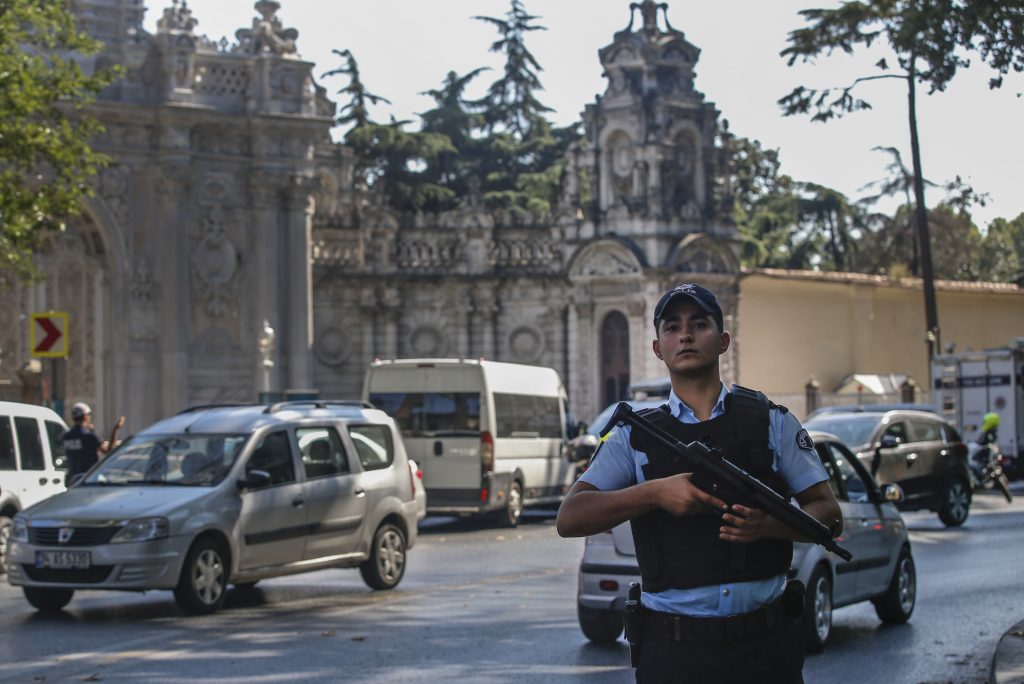
A police officer secures the road that leads to Istanbul's Dolmabache Palace, background, Wednesday, Aug. 19, 2015 following an armed attack. Turkish police arrested two people after shots were fired at officers guarding the Ottoman-era palace that is a major tourist attraction, Turkey's state-run news agency said. (AP Photo/Emrah Gurel)
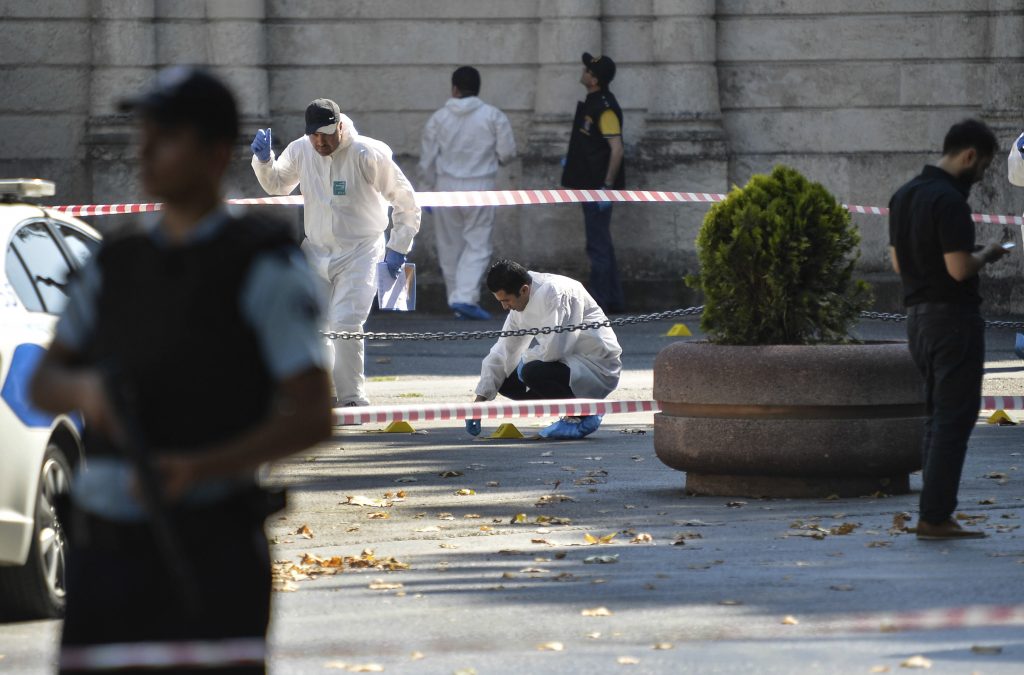
A forensic police officers search for evidence outside Istanbul's Dolmabache Palace, Wednesday, Aug. 19, 2015 following an armed attack. Turkish police arrested two people after shots were fired at officers guarding the Ottoman-era palace that is a major tourist attraction, Turkey's state-run news agency said. (AP Photo/Emrah Gurel)
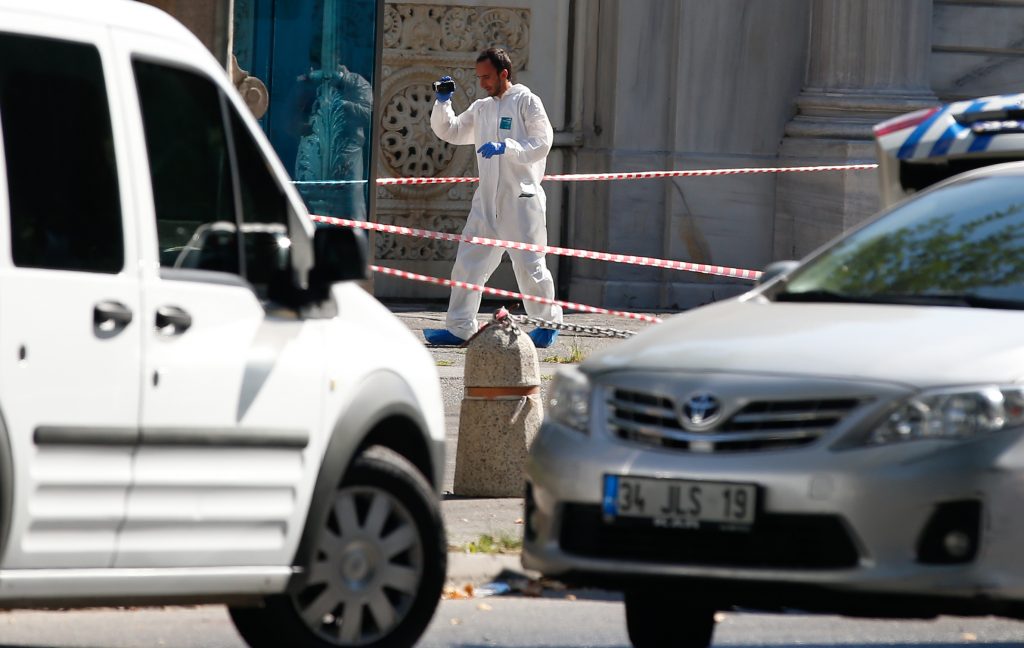
A forensic police officer searchs for evidence outside Istanbul's Dolmabache Palace, Wednesday, Aug 19, 2015 following an armed attack. Turkish police arrested two people after shots were fired at officers guarding the Ottoman-era palace that is a major tourist attraction, (AP Photo/Emrah Gurel)
Il delicato momento storico. Quello che sta vivendo il Paese è un momento delicato per la politica interna, con le ormai prossime elezioni anticipate, attese per il prossimo 12 settembre. Il premier incaricato, Ahmet Davutoglu, infatti ha rimesso il suo mandato nelle mani del presidente, Recep Tayyip Erdogan, dopo che non è riuscito a formare il governo. Ma non c'è solo la crisi politica: sulla Turchia pesano molto gli episodi di violenza che hanno infiammato il Paese a partire da luglio, con l’attentato di Suruc. In quello stesso periodo Erdogan ha deciso di concedere la base di Incirllik agli aerei della Coalizione internazionale che combatte l’Isis, e di bombardare lui stesso gli obiettivi dello Stati Islamico. Una scelta che è valsa a Erdogan la nomea di traditore da parte dei miliziani jihadisti. I raid turchi, però, si sono rivelati essere diretti più contro i curdi che non contro gli islamisti di Al Baghdadi.
Dimissioni previste. Le dimissioni di Davutoglu erano ampiamente previste dopo l’esito elettorale dello scorso giugno, quando per la prima volta nel Paese le urne hanno decretato un clamoroso successo dei curdi del nord, capaci di superare lo sbarramento del 10% con l’Hdp (Partiya Demokratik a Gelan, di area social-democratica) dell’”Obama curdo” Selahattin Demirtas. Sono stati proprio i curdi ad aver azzoppato il partito Akp di Erdogan, di cui Davutoglu era la punta di diamante ma che non è riuscito a conquistare la maggioranza assoluta, perdendo 9 punti e ben 71 deputati.
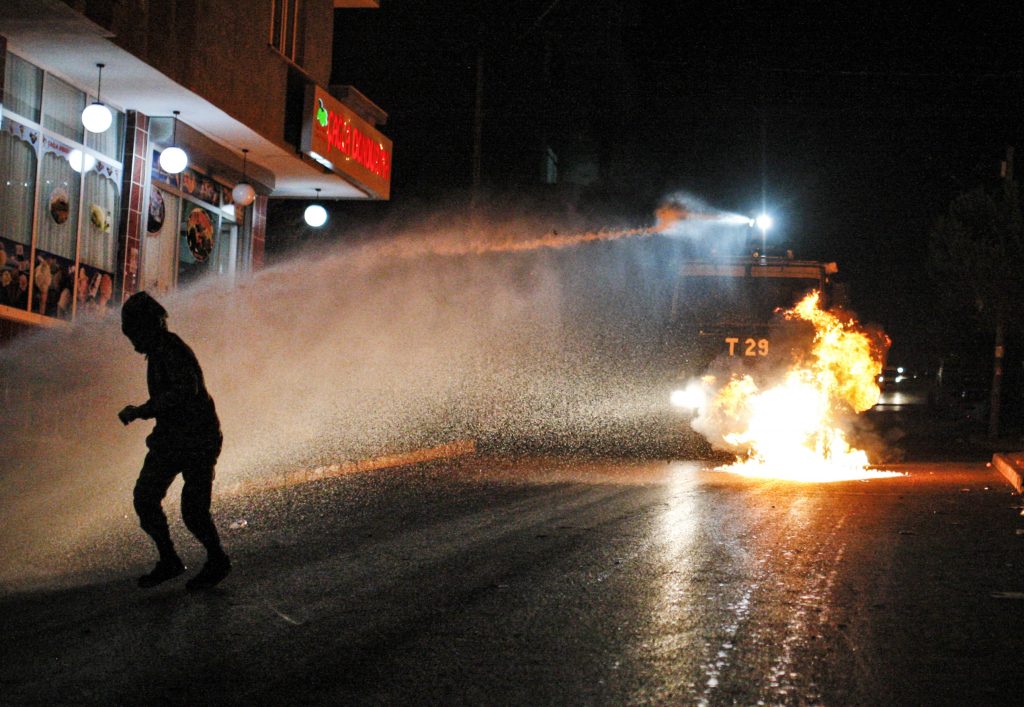
AP10ThingsToSee - A left-wing protester against Turkey's operations against Kurdish militants runs to avoid water from a police water canon, after he threw a petrol bomb at it during clashes in Istanbul, early Sunday, Aug. 16, 2015. There had been a sharp escalation of violence lately between Turkey's security forces and the Kurdistan Workers' Party, or PKK. and the collapse of a two-year peace process with the rebels. Dozens of people, mostly Turkish soldiers, have died since July in the renewed violence. (AP Photo/Cagdas Erdogan) TURKEY OUT
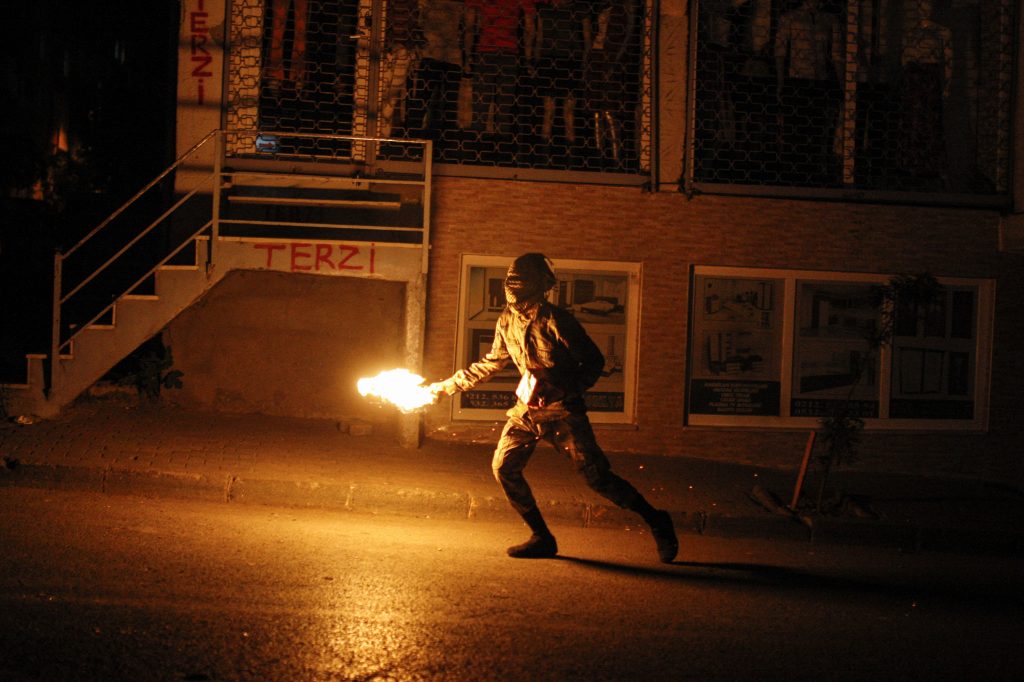
A left-wing protester runs to throw a petrol bomb at the direction of Turkish police during minor clashes between police and people protesting Turkey's operations against Kurdish militants. in Istanbul, early Sunday, Aug. 16, 2015. There had been a sharp escalation of violence lately between Turkey's security forces and the Kurdistan Workers' Party, or PKK. and the collapse of a two-year peace process with the rebels. Dozens of people, mostly Turkish soldiers, have died since July in the renewed violence.(AP Photo/Cagdas Erdogan) TURKEY OUT
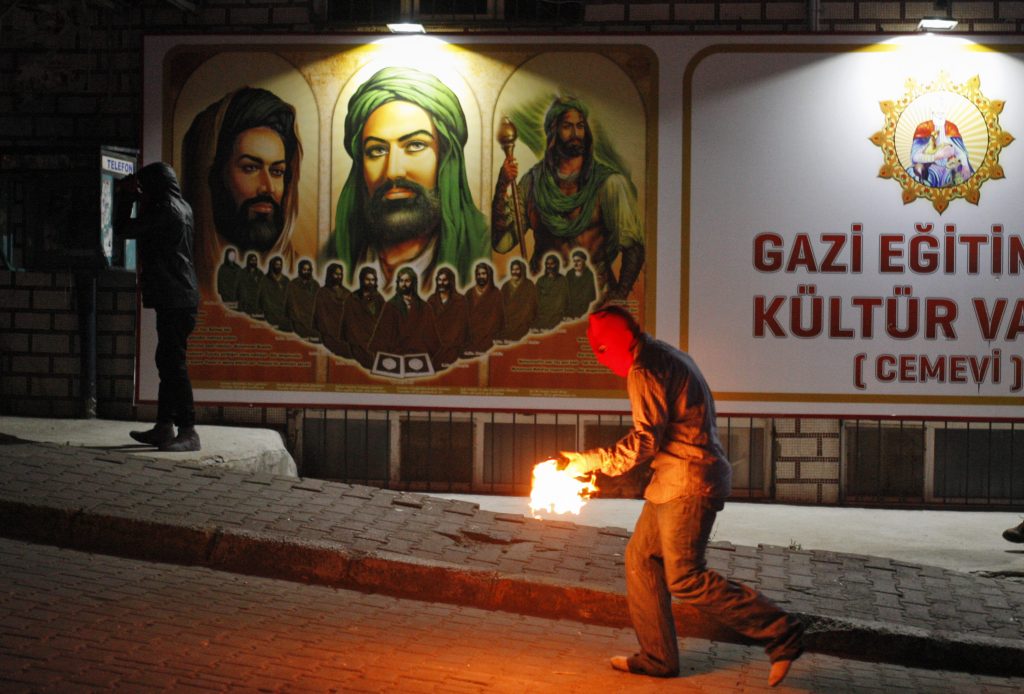
A left-wing protester prepares to hurl a petrol bomb in the direction of Turkish police during minor clashes between police and people protesting Turkey's operations against Kurdish militants in Istanbul, Wednesday, Aug. 19, 2015. There has been a sharp escalation of violence between Turkey's security forces and the Kurdistan Workers' Party, or PKK, along with the collapse of a two-year peace process with the rebels. Dozens of people, mostly Turkish soldiers, have died since July in the renewed violence. (AP Photo/Cagdas Erdogan) TURKEY OUT
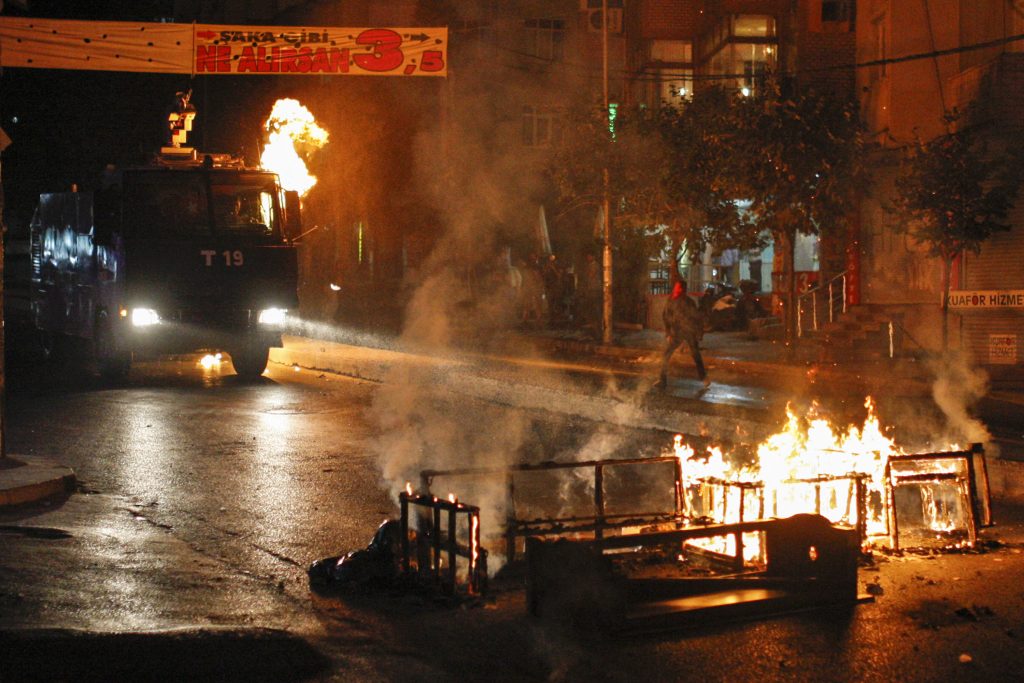
A left-wing protester hurls a petrol bomb at a Turkish police water canon during minor clashes between police and people protesting Turkey's operations against Kurdish militants in Istanbul, Wednesday, Aug. 19, 2015. There has been a sharp escalation of violence between Turkey's security forces and the Kurdistan Workers' Party, or PKK, along with the collapse of a two-year peace process with the rebels. Dozens of people, mostly Turkish soldiers, have died since July in the renewed violence. (AP Photo/Cagdas Erdogan) TURKEY OUT
L’esito del giugno scorso e l’impossibilità a formare il governo. Dopo 13 anni di potere indiscusso e ininterrotto l’Akp si è piazzato al 40,8%; il maggior gruppo di opposizione, cioè il Partito repubblicano del Popolo (Cumhuriyet Halk Partisi, Chp) ha preso il 25,1%; il nazionalista Mhp (Milliyetçi Hareket Partisi) il 16,4%. Tutte formazioni che hanno sempre detto di non voler diventare forza di maggioranza insieme con il partito di Erdogan. A pesare, in particolare, sono state le profonde divergenze in fatto di politica interna con il Chp, che è un fervido sostenitore della laicità dello Stato e della Repubblica Parlamentare, due elementi che non appartengono al modo di intendere il Paese di Erdogan. Il presidente, infatti, aveva e probabilmente ha tuttora in mente di mettere mano alla costituzione e trasformare la Turchia in una repubblica presidenziale, di cui lui sarebbe il capo assoluto. Per questo è stato impossibile formare un nuovo governo e le elezioni anticipate si sono rivelate l’unica soluzione possibile. In attesa del 12 settembre, il Paese sarà guidato da un governo di coalizione ad interim.
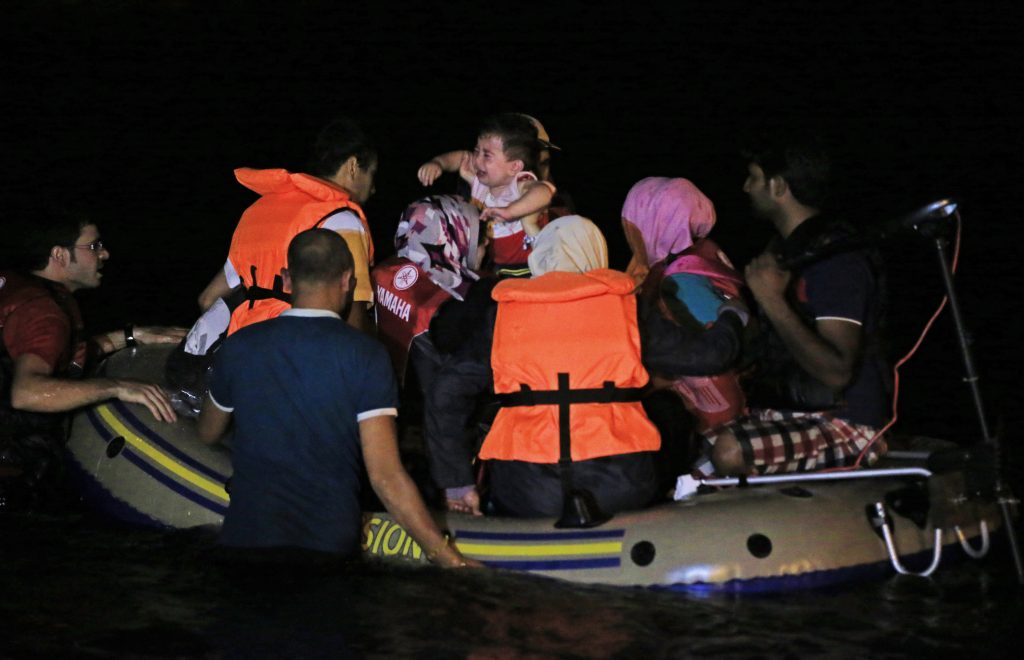
Migrants, including one carrying a crying infant, board a dinghy to begin their journey from near the coastal town of Bodrum, Turkey, to cross to the nearby Greek island of Kos, early Thursday, Aug. 20, 2015. With the shores of Kos - a gateway to Europe - just a few kilometers (miles) away, hundreds of migrants are piling into tiny inflatable dinghies each night and attempting to make the crossing powered by tiny outboard motors and plastic paddles. (AP Photo/Lefteris Pitarakis)
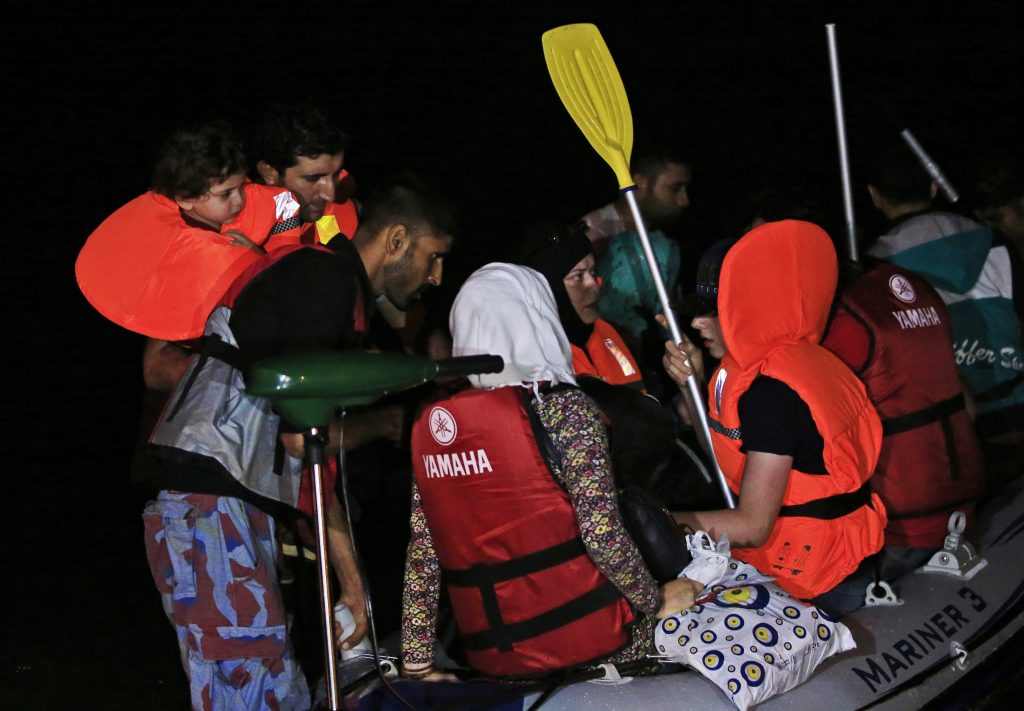
A migrants, carrying a child boards a dinghy along with others to begin their journey from near the coastal town of Bodrum, Turkey, to the nearby Greek island of Kos, early Thursday, Aug. 20, 2015. With the shores of Kos _ a gateway to Europe _ just a few kilometers (miles) away, hundreds of migrants are piling into tiny inflatable dinghies each night and attempting to make the crossing powered by tiny outboard motors and plastic paddles. (AP Photo/Lefteris Pitarakis)
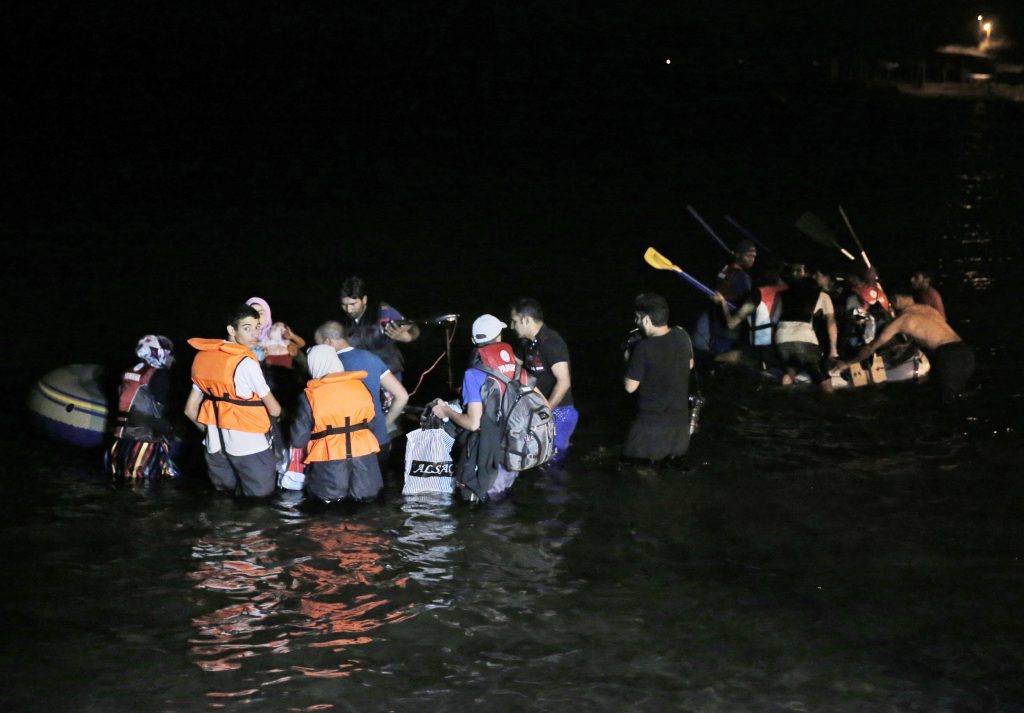
Migrants on dinghies begin their journey from near the coastal town of Bodrum, Turkey, to cross to the nearby Greek island of Kos, early Thursday, Aug. 20, 2015. With the shores of Kos _ a gateway to Europe _ just a few kilometers (miles) away, hundreds of migrants are piling into tiny inflatable dinghies each night and attempting to make the crossing powered by tiny outboard motors and plastic paddles. (AP Photo/Lefteris Pitarakis)
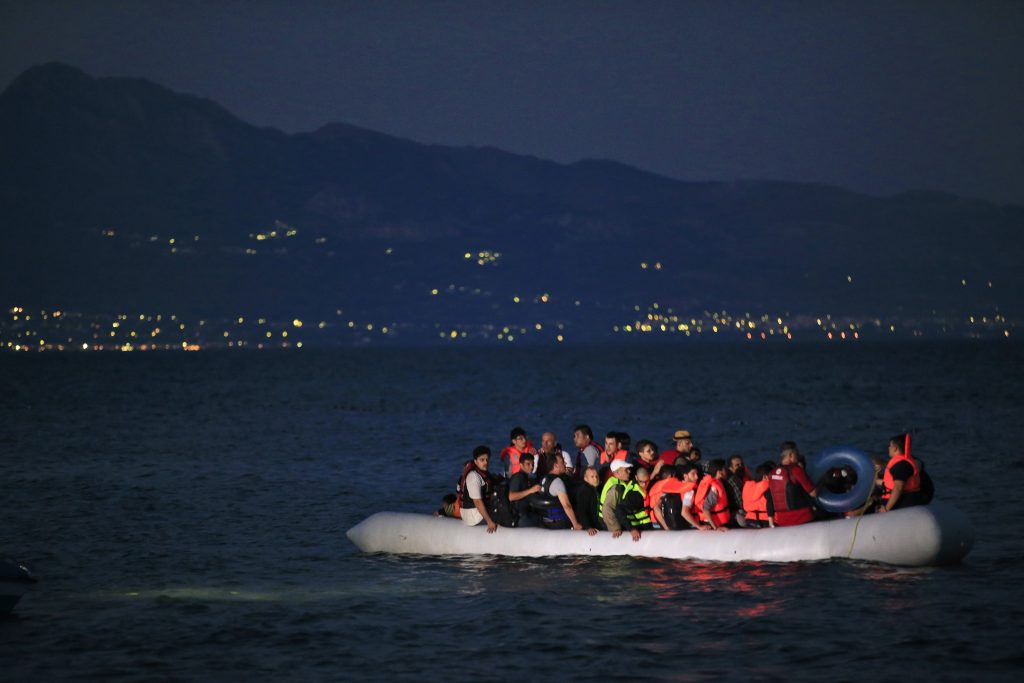
Migrants who tried to begin their journey with a boat from near the coastal town of Bodrum, Turkey, early Wednesday, Aug. 19, 2015 to cross to the nearby Greek island of Kos, its light seen in the background, are towed back ashore by a private boat. Following their failed attempt and after the Turkish coastguard took off the boat's engine according to them, the private boat, which owner Arif Yılmaz, 52, said he was hired by a media crew following migrants leaving Turkey, towed them back ashore. (AP Photo/Lefteris Pitarakis)
Il nodo immigrazione. L’altro nodo che la Turchia deve sciogliere per poter trovare, si spera, un po’ di serenità, è la questione dei migranti. Da sempre il Paese è un partner problematico per l’Europa, ma oggi, con l’emergenza immigrazione che incombe, lo è più che mai. Nelle scorse settimana Erdogan aveva scagliato la sua accusa contro l’Europa, ritenuta responsabile a suo dire delle morti in mare dei migranti. La Turchia, in questi anni di guerra in Siria, ha adottato una politica di apertura delle frontiere, accogliendo sul suo territorio circa 1,8 milioni di rifugiati. E oggi, non casualmente, è il primo Paese da cui partono i barconi della speranza. È stato infatti calcolato che gran parte dei migranti che cercano di raggiungere l’Europa lo fa dalle coste turche. In particolare da Bodrum, l’antica Alicarnasso, la città di Erodoto, che oggi è considerata la Saint Tropez della zona per via della sua movida e le sue attrattive turistiche. Stando ai dati di Frontex, nei primi sei mesi del 2015 sono 79.286 (+512% rispetto allo stesso periodo del 2014), le persone che hanno preferito entrare in Europa, via terra o via mare, attraverso la Turchia, contro i 67.261 partiti dalle coste libiche.